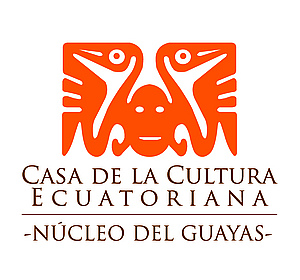|
Habitat III
Habitat III, the United Nations Conference on Housing and Sustainable Urban Development, took place in Quito, Ecuador, from 17 – 20 October 2016. The UN Conferences on Housing (Habitat) are occurring in the bi-decennial cycle (1976, 1996 and 2016). The United Nations General Assembly decided to convene The Habitat III Conference in its resolution 66/207. The Habitat III Conference reinvigorates the global commitment to sustainable urbanization, to focus on the implementation of a “New Urban Agenda”. Habitat III was one of the first United Nations global summits after the adoption of the Post-2015 Development Agenda. It gave the opportunity to open discussions on important urban challenges and questions, such as how to plan and manage cities, towns and villages for sustainable development. The discussion of these questions shapes the implementation of new global development and climate change goals. In particular, the conference elaborates on Goal #11 of the Sustainable Develo ... [...More Info...] [...Related Items...] OR: [Wikipedia] [Google] [Baidu] |
Quito
Quito (; qu, Kitu), formally San Francisco de Quito, is the capital and largest city of Ecuador, with an estimated population of 2.8 million in its urban area. It is also the capital of the province of Pichincha. Quito is located in a valley on the eastern slopes of Pichincha, an active stratovolcano in the Andes, at an elevation of , making it the second-highest capital city in the world.Contact Us " TAME. Retrieved on 14 March 2010. Quito is the political and cultural center of Ecuador as the country's major governmental, administrative, and cultural institutions are located within the city. The majority of transnational companies with a presence in Ecuador are headquartered there. It is also one of the country's two major industrial centers—the port city of |
Istanbul
Istanbul ( , ; tr, İstanbul ), formerly known as Constantinople ( grc-gre, Κωνσταντινούπολις; la, Constantinopolis), is the List of largest cities and towns in Turkey, largest city in Turkey, serving as the country's economic, cultural and historic hub. The city straddles the Bosporus strait, lying in both Europe and Asia, and has a population of over 15 million residents, comprising 19% of the population of Turkey. Istanbul is the list of European cities by population within city limits, most populous European city, and the world's List of largest cities, 15th-largest city. The city was founded as Byzantium ( grc-gre, Βυζάντιον, ) in the 7th century BCE by Ancient Greece, Greek settlers from Megara. In 330 CE, the Roman emperor Constantine the Great made it his imperial capital, renaming it first as New Rome ( grc-gre, Νέα Ῥώμη, ; la, Nova Roma) and then as Constantinople () after himself. The city grew in size and influence, eventually becom ... [...More Info...] [...Related Items...] OR: [Wikipedia] [Google] [Baidu] |
The Conversation (website)
''The Conversation'' is a network of not-for-profit media outlets publishing news stories and research reports online, with accompanying expert opinion and analysis. Articles are written by academics and researchers under a free Creative Commons license, allowing reuse without modification. Its model has been described as explanatory journalism. Except in "exceptional circumstances", it only publishes articles by "academics employed by, or otherwise formally connected to, accredited institutions, including universities and accredited research bodies". The website was launched in Australia in March 2011. The network has since expanded globally with a variety of local editions originating from around the world. In September 2019, ''The Conversation'' reported a monthly online audience of 10.7 million users, and a combined reach of 40 million people when including republication. The site employed over 150 full-time staff as of 2020. Each regional or national edition of '' ... [...More Info...] [...Related Items...] OR: [Wikipedia] [Google] [Baidu] |
Casa De La Cultura Ecuatoriana
La Casa de la Cultura Ecuatoriana (''The House of Ecuadorian Culture'') is a cultural organization founded by Benjamín Carrión on August 9, 1944, during the presidency of Dr Jose Maria Velasco Ibarra. It was created to stimulate, to direct and to coordinate the development of an authentic national culture. Headquartered in Quito Quito (; qu, Kitu), formally San Francisco de Quito, is the capital and largest city of Ecuador, with an estimated population of 2.8 million in its urban area. It is also the capital of the province of Pichincha. Quito is located in a valley o ..., it maintains several museums throughout Ecuador. External links Casa de la Cultura Ecuatoriana Benjamín Carrión {{Authority control Ecuadorian culture Museums in Ecuador Museums established in 1944 1944 establishments in South America ... [...More Info...] [...Related Items...] OR: [Wikipedia] [Google] [Baidu] |
Intergovernmental Organizations
An international organization or international organisation (see spelling differences), also known as an intergovernmental organization or an international institution, is a stable set of norms and rules meant to govern the behavior of states and other actors in the international system. Organizations may be established by a treaty or be an instrument governed by international law and possessing its own legal personality, such as the United Nations, the World Health Organization and NATO. International organizations are composed of primarily member states, but may also include other entities, such as other international organizations, firms, and nongovernmental organizations. Additionally, entities (including states) may hold observer status. Notable examples include the United Nations (UN), Organization for Security and Co-operation in Europe (OSCE), Bank for International Settlements (BIS), Council of Europe (COE), International Labour Organization (ILO) and International Crim ... [...More Info...] [...Related Items...] OR: [Wikipedia] [Google] [Baidu] |
United Nations System
The United Nations System consists of the United Nations' six principal organs (the General Assembly, Security Council, Economic and Social Council (ECOSOC), Trusteeship Council, International Court of Justice (ICJ), and the UN Secretariat), the Specialized Agencies and related organizations. The UN System includes subsidiary bodies such as the separately administered funds and programmes, research and training institutes, and other subsidiary entities. Some of these organizations predate the founding of the United Nations in 1945 and were inherited after the dissolution of the League of Nations. The executive heads of some of the United Nations System organizations and the World Trade Organization, which is not formally part of the United Nations System, have seats on the United Nations System Chief Executives' Board for Coordination (CEB). This body, chaired by the Secretary-General of the United Nations, meets twice a year to co-ordinate the work of the organizations of t ... [...More Info...] [...Related Items...] OR: [Wikipedia] [Google] [Baidu] |
Private Sector
The private sector is the part of the economy, sometimes referred to as the citizen sector, which is owned by private groups, usually as a means of establishment for profit or non profit, rather than being owned by the government. Employment The private sector employs most of the workforce in some countries. In private sector, activities are guided by the motive to earn money. A 2013 study by the International Finance Corporation (part of the World Bank Group) identified that 90 percent of jobs in developing countries are in the private sector. Diversification In free enterprise countries, such as the United States, the private sector is wider, and the state places fewer constraints on firms. In countries with more government authority, such as China, the public sector makes up most of the economy. Regulation States legally regulate the private sector. Businesses operating within a country must comply with the laws in that country. In some cases, usually involving multinatio ... [...More Info...] [...Related Items...] OR: [Wikipedia] [Google] [Baidu] |
Trade Union
A trade union (labor union in American English), often simply referred to as a union, is an organization of workers intent on "maintaining or improving the conditions of their employment", ch. I such as attaining better wages and benefits (such as holiday, health care, and retirement), improving working conditions, improving safety standards, establishing complaint procedures, developing rules governing status of employees (rules governing promotions, just-cause conditions for termination) and protecting the integrity of their trade through the increased bargaining power wielded by solidarity among workers. Trade unions typically fund their head office and legal team functions through regularly imposed fees called ''union dues''. The delegate staff of the trade union representation in the workforce are usually made up of workplace volunteers who are often appointed by members in democratic elections. The trade union, through an elected leadership and bargaining committee, ... [...More Info...] [...Related Items...] OR: [Wikipedia] [Google] [Baidu] |
Parliament
In modern politics, and history, a parliament is a legislative body of government. Generally, a modern parliament has three functions: Representation (politics), representing the Election#Suffrage, electorate, making laws, and overseeing the government via hearings and inquiries. The term is similar to the idea of a senate, synod or congress and is commonly used in countries that are current or former monarchies. Some contexts restrict the use of the word ''parliament'' to parliamentary systems, although it is also used to describe the legislature in some presidential systems (e.g., the Parliament of Ghana), even where it is not in the Legal name, official name. Historically, parliaments included various kinds of deliberative, consultative, and judicial assemblies, an example being the French medieval and early modern parlements. Etymology The English term is derived from Anglo-Norman language, Anglo-Norman and dates to the 14th century, coming from the 11th century Old ... [...More Info...] [...Related Items...] OR: [Wikipedia] [Google] [Baidu] |
Project Stakeholder
Project stakeholders are persons or entities who have an interest in a given project. According to the Project Management Institute (PMI), the term ''project stakeholder'' refers to "an individual, group, or organization, who may affect, be affected by, or perceive itself to be affected by a decision, activity, or outcome of a project". ISO 21500 uses a similar definition. Stakeholders may be located inside or outside an organization, including: # the project's sponsor; # those with an interest or the potential to gain from the successful completion of a project; #anyone who may have a positive or negative influence in the project completion. Example roles The following are examples of project stakeholders: * Project leader * Senior management * Project team members * Project customer * Resource managers * Line managers * Product user group * Project testers * Any group impacted by the project as it progresses * Any group impacted by the project when it is completed * Subcontract ... [...More Info...] [...Related Items...] OR: [Wikipedia] [Google] [Baidu] |
UN-Habitat
The United Nations Human Settlements Programme (UN-Habitat) is the United Nations programme for human settlements and sustainable urban development. It was established in 1977 as an outcome of the first United Nations Conference on Human Settlements and Sustainable Urban Development (Habitat I) held in Vancouver, Canada, in 1976. UN-Habitat maintains its headquarters at the United Nations Office at Nairobi, Kenya. It is mandated by the United Nations General Assembly to promote socially and environmentally sustainable towns and cities with the goal of providing adequate shelter for all. It is a member of the United Nations Development Group. The mandate of UN-Habitat derives from the Habitat Agenda, adopted by the United Nations Conference on Human Settlements (Habitat II) in Istanbul, Turkey, in 1996. The twin goals of the Habitat Agenda are adequate shelter for all and the development of sustainable human settlements in an urbanizing world. Overview The UN-Habitat mandate i ... [...More Info...] [...Related Items...] OR: [Wikipedia] [Google] [Baidu] |






